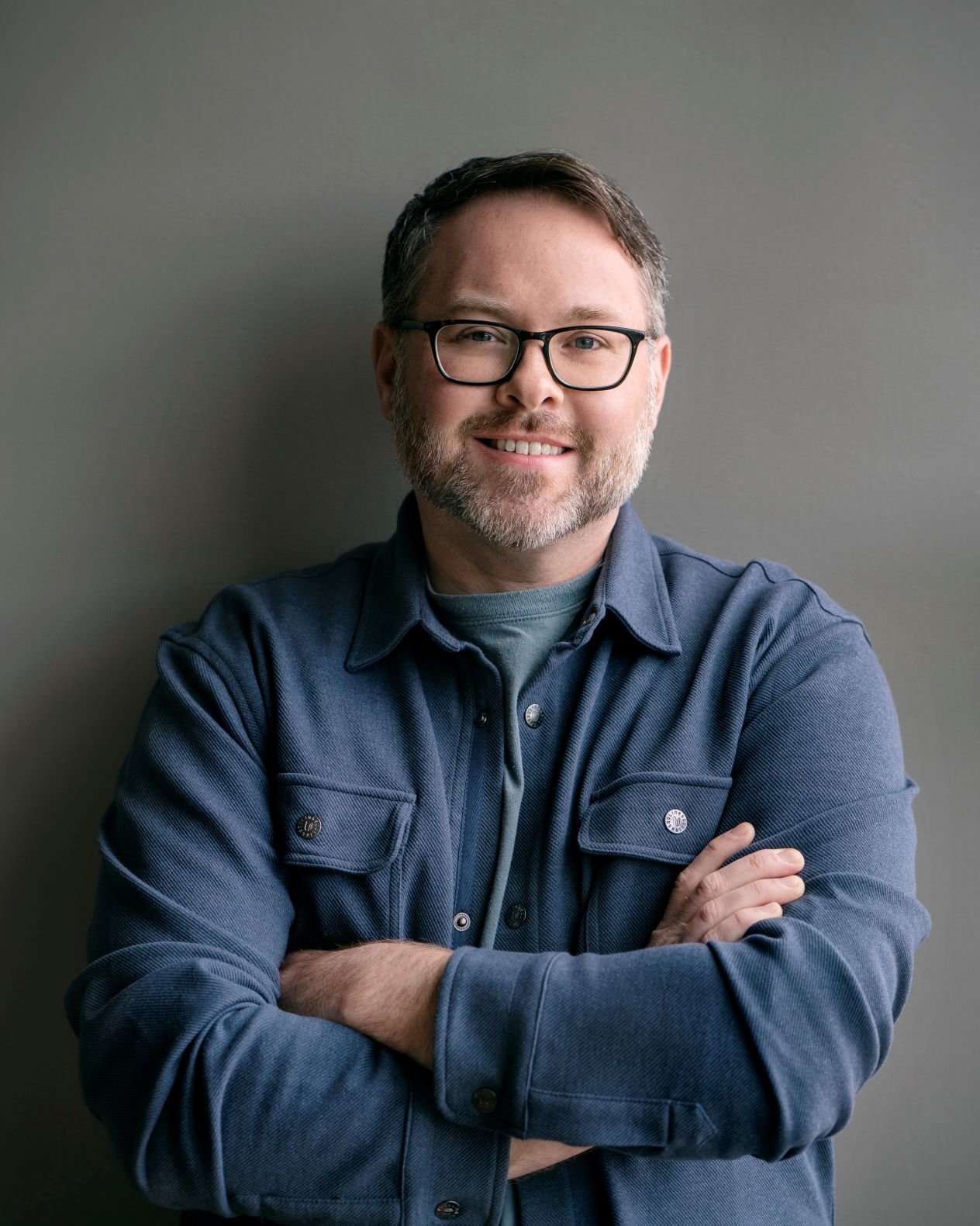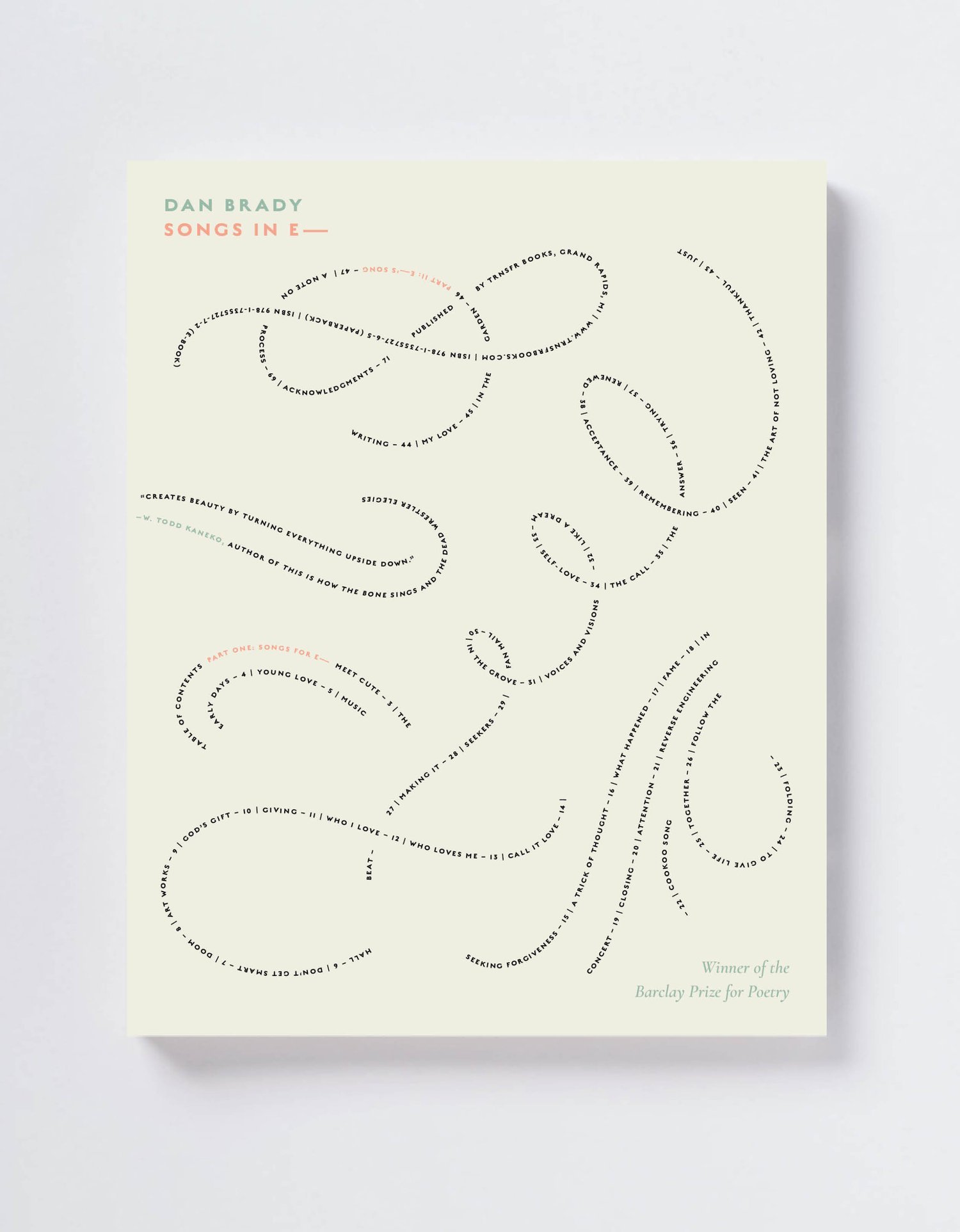Building Community Through Poetry
A Conversation with Arlington Literary Specialist Dan Brady
by Gregory Luce
Dan Brady wears multiple hats, but all are indicative of his service to poetry. First, he is a poet himself, with three books and numerous journal publications to his credit. His most recent collection, Songs in E––, won the Barclay Prize for Poetry. Second, he is a long-time editor of D.C.-based Barrelhouse magazine. Finally, he is the Literary Specialist for Arlington County Department of Cultural Affairs. Washington Unbound managed to catch up with him for a conversation about his work in all aspects of poetry.
WU: Thanks for agreeing to answer a few questions. First, tell us a little bit about yourself and your background.
DB: I grew up, for the most part, in New Jersey, with a few years apiece spent in Aruba and California. I moved to Northern Virginia after college. As soon as I discovered poetry, I knew I wanted to be involved in it. I didn’t care too much about how—writing, editing, publishing, presenting,it all appealed to me. I just wanted to be immersed in it, and that’s played out across my life. I’ve done a bit of everything. I’ve always thought my goal is to lift up poetry, whether it’s mine or someone else’s. People are often intimidated by poetry, or they don’t know how to approach it, and if you can just get them to engage a little bit, they often find they like it. I’m looking for converts.
WU: When and why did you start writing poetry? Did you study writing in college? Who are some of your mentors or influences?
DB: I started writing poetry in high school. I had great English teachers who encouraged us to read outside of the curriculum and I found my way to the Beat poets—I loved the West Coast writers like Bob Kaufmann, Gary Snyder, Lawrence Ferlinghetti.
I got more serious about my own writing in college and dove deeper into modern and contemporary poetry. William Carlos Williams was an important find. I had a great poetry professor, Catie Rosemurgy, who introduced me to contemporary poets like Matthea Harvey, Mark Bibbins, and Tracy Smith. Matthea’s poems taught me that you can play and be serious at the same time. She’s absolutely fearless in what she will attempt. Similarly, Matthew Rohrer was a big influence. His poems felt heartfelt and real, while also being strange and thoughtful.
The poet who changed me the most was Jack Gilbert, both for his substance and style. When I think about what I want a poem to be, it’s pretty much a Jack Gilbert poem.
WU: Tell us about your poetry: books, journal publications, etc.
DB: I’ve been lucky enough to publish three books at this point. The first was Strange Children (2018) which is very personal. It’s the emotional fallout of my wife’s stroke after our son was born, learning that we couldn’t have any more kids naturally, and embarking on the adoption process. The collection is anchored by two longer, fragmented sequences and filled out by shorter lyrical pieces. Publishers Weekly called it an experiment in “radical openness” and I’ve always liked that.
My second book is called Subtexts (2022) and it’s more experimental. I had the idea to try to write poems that had a three-dimensional depth to them. What I came up with was a modified erasure form where each page builds on the previous pages of erased text until the full, original block of text is revealed, and then the process reverses and the text is erased again down to a final single phrase. It’s hard to describe, but it makes immediate sense when you see it. People love picking this one up and figuring out how it works.
My most recent book is Songs in E–– (2023), which marries my two interests of accessibility and experimentation. It takes poems by Elizabeth Barrett Browning and Robert Browning as its basis to tell a type of love story, though the lovers aren’t always kind to each other. It’s a book out of time filtered through a modern lens.
WU: Could you say something about your role in editing and growing Barrelhouse Magazine and your ongoing work with it?
DB: I came on with Barrelhouse just after their first issue was published, back in 2005. I found a copy in Kramerbooks and loved what they were doing. The work was fun and felt engaged with the real world today. Back then, not that many journals were interested in pop culture. It was different. I was in grad school at the time for arts administration, so I reached out to see if they needed any help with marketing, fundraising, getting set up as a nonprofit, etc. All the things most editors don’t want to deal with anyway. They were game to have me help out, and I’ve been involved ever since.
I still handle most of that business stuff, but I also was the poetry editor for the magazine for a long time. Nowadays, Christina Beasley helms poetry for the journal, and I focus on our poetry books. We also have our annual conference in D.C. and Writer Camp in the summer. We do a lot, but it’s a group effort. We really value community, affordability, and sustainability. We want everyone to have a place to belong and a way into the literary community, and we want to make sure we will be in it for the long haul.
Dan Brady with former Arlington Poet Laureate Holly Karapetkova, current Poet Laureate Courtney LeBlanc, and former Poet Laureate Katherine Young.
WU: How did you come to be the Literary Specialist for Arlington County Cultural Affairs? Did you bring previous experience in arts administration?
DB: After my daughter was born, I wanted a more flexible schedule. I left my regular job and started consulting. The person who previously coordinated Arlington’s poetry programs left, and I heard they were looking for a replacement, so I reached out. I have a Masters from George Mason University in Arts Management. I previously worked at the Academy of American Poets and in the Literature Division of the National Endowment for the Arts. Up until that point, I had spent most of my career working in the literary arts, and I thought I could contribute.
I love that I get to do this for the community I live in. Back when I started, we were relaunching the Poet Laureate program and continuing our existing programs like Moving Words (short poems on the ART buses), the Poet Is IN (poems-on-demand at libraries and farmers markets), and Pick-a-Poet (poets in schools). It’s been amazing to work with our Poets Laureate Holly Karapetkova and Courtney LeBlanc on new programs like projecting poems onto buildings during Covid, publishing a youth poetry anthology, integrating poetry into Columbia Pike’s Bluesfest, and hosting a series of poetry nature walks. There is so much good poetry going on in Arlington.
WU: Anything you’d like to add?
I’ve touched on community a few times, and I just want to say that I believe that community is the basis for all art. Poetry, at its heart, is an act of communication. It is the hope that I can express myself and someone else, somewhere, will find it, read it, and respond. That act, of writing and receiving, requires community. Though both parts often happen in solitude, the process cannot happen without a community. Most of the work I do in poetry is about fostering this community, connecting writers with readers, connecting writers and writers, connecting readers and more readers. There are all these little pathways between us, and our words travel them. I want to carve out as many little pathways as I can between writers and readers, between me and you. If you’ve ever wondered what I am doing and why, that’s it.
For more about Dan, visit https://danbrady.org/.
You can buy his books directly from the small publishers by following these links: Strange Children, Subtexts, Songs in E––.
Learn more about Arlington County’s programs in Humanities, which include the poetry programs Dan mentions and encompass oral history, spoken word, and literature, here. And follow these links to get more information about the County’s Moving Words, the Poet Is IN , and Pick-a-Poet programs.
Dan Brady is the author of three poetry collections, most recently Songs in E——, winner of the Barclay Prize for Poetry, along with two poetry chapbooks. He is the poetry editor of Barrelhouse and lives in Arlington, Virginia with his wife and two kids. Previously, Dan served as the editor of American Poets and worked in the Literature Division at the National Endowment for the Arts, where he received a Distinguished Service Award for his work on the Big Read. He currently is the Literary Specialist for Arlington County Department of Cultural Affairs.
Gregory Luce is the co-founder and poetry editor of Washington Unbound. He has published six chapbooks. He lives in Arlington and serves as Poetry Editor of The Mid-Atlantic Review and writes a monthly column for the online arts journal Scene4.



